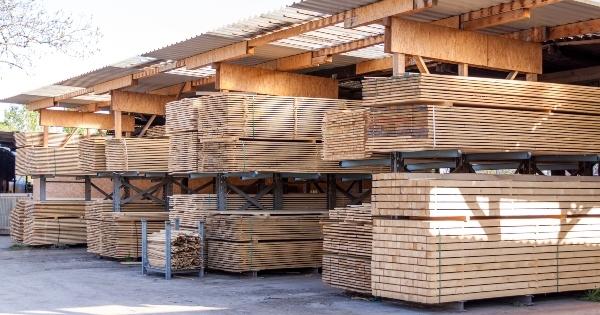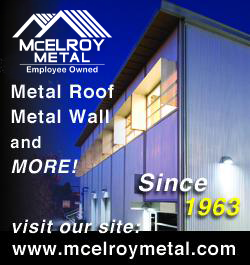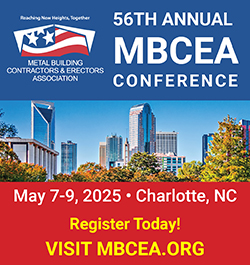UP TO THE MINUTE
Colorado COVID-19 Guidelines for Roofers

By Attorney Ryan Markham, Cotney Construction Law.
Ensure your roofing company is in compliance with these standards, regulations and best practices.
The COVID-19 pandemic has many Colorado roofers wondering what they must do to ensure they are complying with all State, County and Federal COVID regulations.
The following will provide you with a summary of applicable standards and regulations for your roofing business as well as discussion of best practices and ways to ensure that your roofing company is in compliance.
State of Colorado orders
On March 11, 2020, Governor Jared Polis issued Executive Order “D-2020-003” to address the outbreak of COVID-19 in Colorado. The Order seeks to limit the spread of the disease by establishing or facilitating the creation of rules that citizens and businesses must adhere to in public spaces. Since its enactment, the Order has been amended numerous times and references Colorado Department of Public Health & Environment (“CDPHE”) Orders.
On March 22, 2020, CDPHE issued Public Health Order 20-24, which deemed construction a “Critical Business.” Under this classification, companies engaged in construction were exempted from some of the more restrictive aspects of the various COVID-19 Executive and other Orders, such as capping the maximum percentage of employees allowed in a business.
Executive Order “D-2020-138” requires masks to be worn in a “Public Indoor Space.” This mask Order would not apply to most open-air roofing job sites or private offices, but the use of masks in roofing offices will help a roofing company limit employee exposure to COVID-19 which will help comply with OSHA standards.
OSHA enforcement
While State of Colorado Public Health and Executive Orders may not explicitly apply to the roofing industry, OSHA has jurisdiction over employer/employee relationships in Colorado when it comes to workplace health and safety. The most relevant OSHA standards applicable to Roofers are: (1) 29 CFR 1926 Subpart E, which governs Personal Protective Equipment (PPE); and (2) the catch all General Duty Clause, Section 5(a)(1) of the OSH Act of 1970, 29 USC 654(a)(1).
29 CFR 1926 Subpart E requires using gloves, eye and face protection, and respiratory protection when job hazards warrant it. This standard has the primary purpose of preventing “atmospheric contamination.” Do potential COVID-19 droplets constitute atmospheric contamination? The short answer is, probably yes.
To ensure compliance with the PPE standard we look to OSHA’s “Returning to Work Guidance” and “Construction Work Guidance” which provide that cloth face masks should be used when workers are working within six feet of each other. For outdoor roofing activities, cloth masks do not need to be utilized, but if workers are congregating closely or in a job or safety ‘huddle’ then cloth masks should be used to err on the side of caution and compliance.
Requiring masks to be worn by workers when they are working within six feet of each other will also ensure compliance with the General Duty clause. While OSHA’s “Returning to Work Guidance” and “Construction Work Guidance” are only meant to provide guidance and are not enforceable, following them can serve as an absolute defense to any enforcement action under the OSHA PPE standard and General Duty Clause, as well as prevent the spread of COVID-19 in your roofing company, which itself avoids workflow and related personnel headaches.
Under the General Duty Clause OSHA can cite employers for failing to take necessary precautions to protect its employees against COVID-19. To ensure compliance with the General Duty Clause Roofers should make efforts follow OSHA’s guidance:
-
Encourage workers to stay home if they are sick.
-
Allow workers to wear masks over their nose and mouth to prevent them from spreading the virus.
-
Continue to use other normal control measures, including personal protective equipment (PPE), necessary to protect workers from other job hazards associated with construction activities.
-
Advise workers to avoid physical contact with others and direct employees/contractors/visitors to increase personal space to at least six feet, where possible. Where work trailers are used, all workers should maintain social distancing while inside the trailers.
-
Train workers how to properly put on, use/wear and take off protective clothing and equipment.
-
Encourage respiratory etiquette, including covering coughs and sneezes.
-
Promote personal hygiene. If workers do not have immediate access to soap and water for handwashing, provide alcohol-based hand rubs containing at least 60 percent alcohol.
-
Use Environmental Protection Agency-approved cleaning chemicals from List N or that have label claims against the coronavirus.
-
To the extent tools or equipment must be shared, provide and instruct workers to use alcohol-based wipes to clean tools before and after use. When cleaning tools and equipment, workers should consult manufacturer recommendations for proper cleaning techniques and restrictions.
-
Keep in-person meetings (including toolbox talks and safety meetings) as short as possible, limit the number of workers in attendance, and use social distancing practices.
-
Clean and disinfect portable job site toilets regularly. Hand sanitizer dispensers should be filled regularly. Frequently touched items (i.e., door pulls and toilet seats) should be disinfected.
-
Encourage workers to report any safety and health concerns.
https://www.osha.gov/Publications/OSHA4000.pdf
Again, it is important to note that these recommended practices only constitute OSHA guidance, and failing to take these actions will not necessarily result in a citation. However, taking as many of these precautions as are feasible for your business can both prevent a citation under the General Duty Clause, and serve as a defense to a citation as you are simply doing what OSHA recommends to protect your workers.
OSHA recordkeeping requirements
On May 19, 2020, OSHA issued an Enforcement Memorandum, which makes COVID-19 a recordable illness for employers with ten (10) or more employees if:
-
The case is a confirmed case of COVID-19, as defined by the Centers for Disease Control and Prevention (CDC);
-
The case is work-related as defined by 29 CFR § 1904.5; and
-
The case involves one or more of the general recording criteria set forth in 29 CFR § 1904.7.
The ‘work-relatedness’ of a COVID-19 can often be difficult to ascertain given the nature of COVID-19 infection and workers conduct outside of the office or job site. The Enforcement Memorandum lays out three criteria for CSHO’s to determine whether an employer has complied with its obligation to make a reasonable determination of ‘work-relatedness’:
-
The reasonableness of the employer’s investigation into work-relatedness;
-
The evidence available to the employer; and
-
The evidence that COVID-19 illness was contracted at work.
If after a reasonable and good faith inquiry described above, you cannot determine whether it is more likely than not that exposure in the workplace played a causal role in the worker contracting COVID-19, then you do not need to record that COVID-19 illness.
Conclusion
Keep monitoring Colorado Orders as they are issued and see if they impact your roofing company. Try to adhere to OSHA guidance in maintaining your workplace and adopt a cloth mask policy when workers are working within six feet of each other to ensure compliance with OSHA standards. If one of your employees tests positive for COVID-19, make a reasonable and good faith inquiry as to whether or not they contracted it at work and record if necessary.
Contact Cotney Construction Law for additional information.
Learn more about Cotney Construction Law in their RoofersCoffeeShop® Directory.
Disclaimer: The information contained in this article is for general educational information only. This information does not constitute legal advice, is not intended to constitute legal advice, nor should it be relied upon as legal advice for your specific factual pattern or situation. Regulations and laws may vary depending on your location. Consult with a licensed attorney in your area if you wish to obtain legal advice and/or counsel for a particular legal issue.
Source: Cotney Construction Law


















Comments
Leave a Reply
Have an account? Login to leave a comment!
Sign In